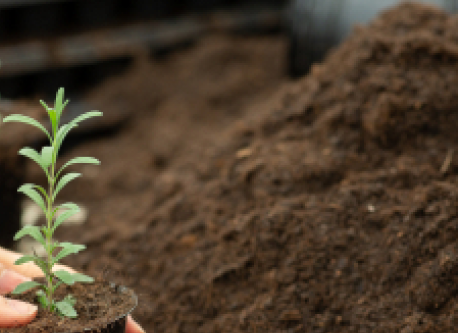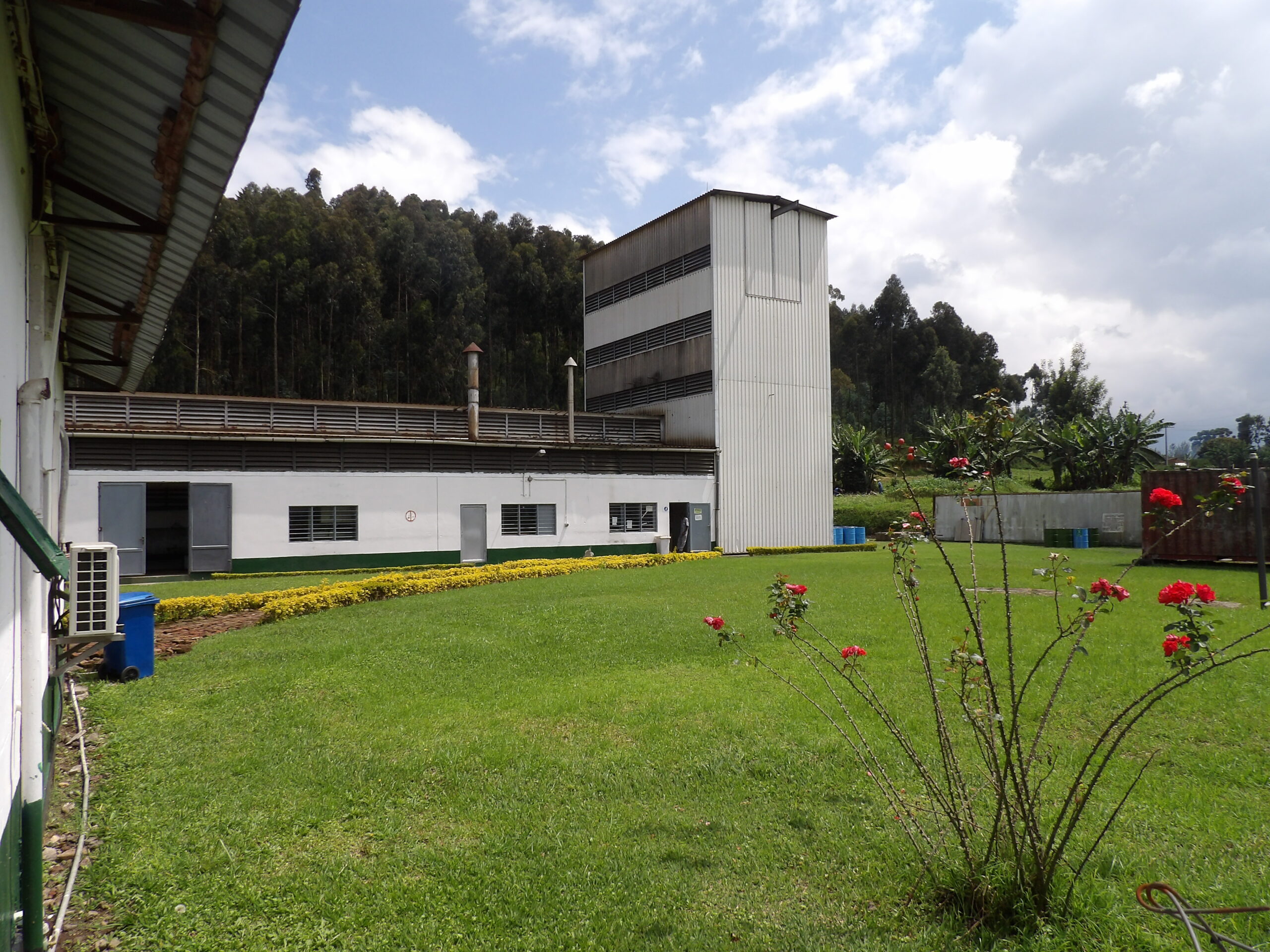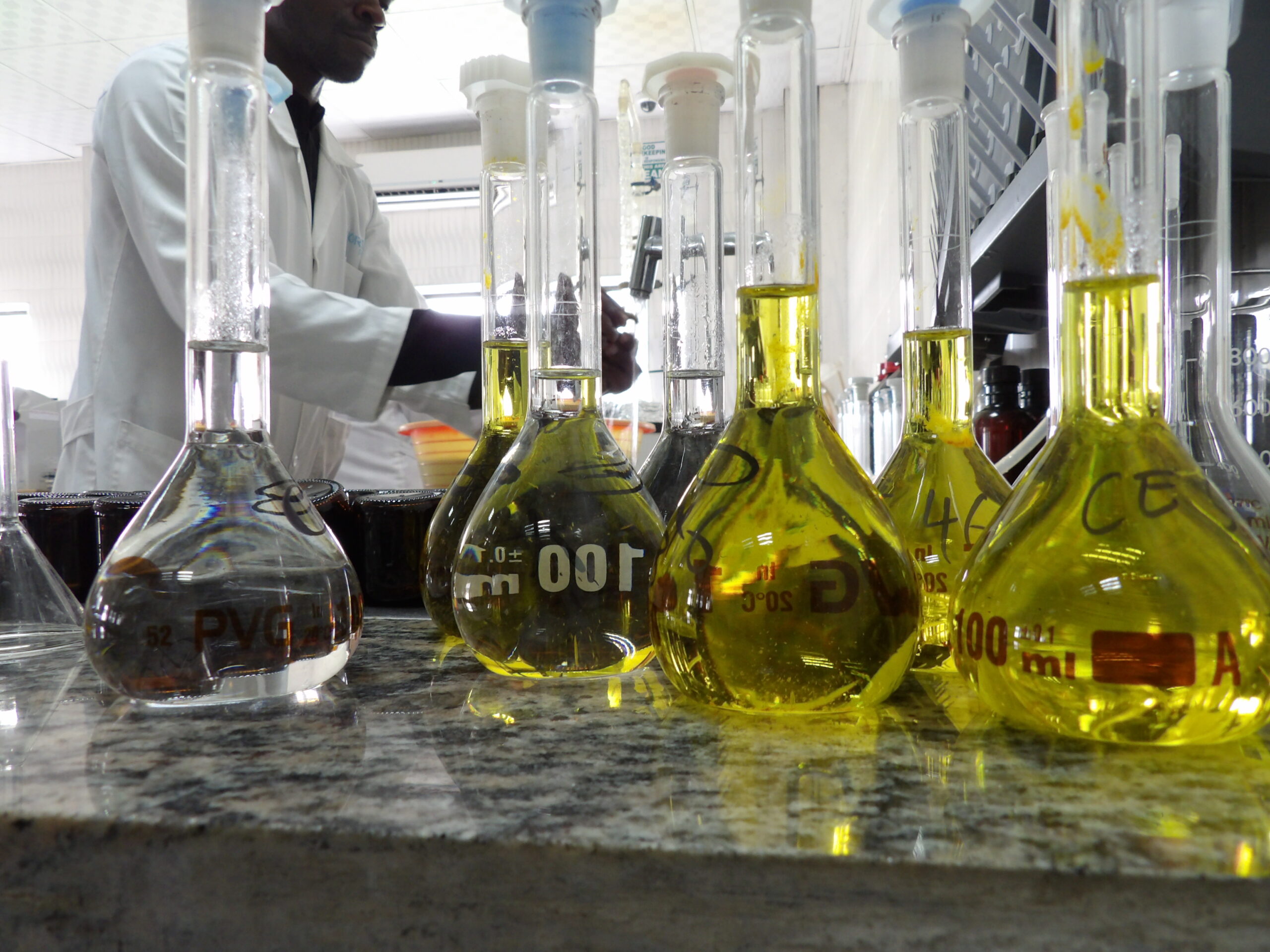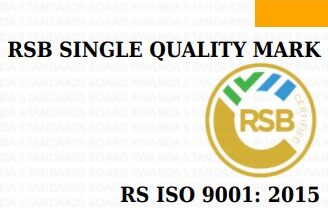Pyrethrum
Pyrethrum is a natural insecticide derived from dried flowers of the chrysanthemum plant, also known as the “pyrethrum daisy”.
Pyrethrum’s outstanding properties give it a global demand that is largely unmet. It is a rapid-action contact insecticide attacking the nervous system of insects. It has low mammalian toxicity with proven safety towards humans and other warm-blooded animals. There is no record of insect immunity, and so insect resistance is of no practical concern. Pyrethrum has a broad spectrum of uses because of a group of insecticidal compounds it contains, that target a wide range of insect species. Also of note, is
pyrethrum’s natural degradability. The ultra-violet light in sunlight and other light sources rapidly degrades hence it does not persist on usage. Pyrethrum has also been used in the past as an effective insecticide. These properties make pyrethrum a much-desired product all over the world. Because of pyrethrum‘s natural insecticidal and anti-disease properties, farmers are realising increases in the harvest of other crops, such as potatoes grown within the same locality.
For many farmers, the money earned from pyrethrum production funds school tuition,uniforms, books, supplies and other domestic essentials.
Pyrethrum
Pyrethrum is a natural insecticide derived from dried flowers of the chrysanthemum plant, also known as the “pyrethrum daisy”.
Pyrethrum’s outstanding properties give it a global demand that is largely unmet. It is a rapid-action contact insecticide attacking the nervous system of insects. It has low mammalian toxicity with proven safety towards humans and other warm-blooded animals. There is no record of insect immunity, and so insect resistance is of no practical concern. Pyrethrum has a broad spectrum of uses because of a group of insecticidal compounds it contains, that target a wide range of insect species. Also of note, is
pyrethrum’s natural degradability. The ultra-violet light in sunlight and other light sources rapidly degrades hence it does not persist on usage. Pyrethrum has also been used in the past as an effective insecticide. These properties make pyrethrum a much-desired product all over the world. Because of pyrethrum‘s natural insecticidal and anti-disease properties, farmers are realising increases in the harvest of other crops, such as potatoes grown within the same locality.
For many farmers, the money earned from pyrethrum production funds school tuition,uniforms, books, supplies and other domestic essentials.
Three core processes

Crop Production
The crop production process is a core
function of smallholder producers. They
are organized into seven cooperatives
to grow, harvest and dry pyrethrum.
Each producer is allocated two hectares
of land by government, and is required
under the land-use policy to dedicate
at least 40% of this land annually
to pyrethrum production.

Factory Production
Once the dried flowers are delivered
at the Horizon SOPYRWA plant, they
are milled and placed into extraction
cylinders, after which the extraction
process begins. Pyrethrum crude (a dark
coloured, viscous liquid) is extracted. This
is then refined to produce what is known
as pyrethrum pale extract, an amber or
clear liquid. This particular product is
what is then exported for manufacture of
pyrethrum-based products on the global
market.

Marketing
The refined pyrethrum pale is marketed
and sold to markets within in Africa,
USA and Europe. Current plans
include extending exports into Asian,
Canadian and South American markets.
Horizon SOPYRWA also supplies local
manufacturer Agropharm Africa Ltd
with pyrethrum pale, which it further
processes into organic, powder and
liquid pesticides.
How it works
Our farmers
Role of Research
Crop Production
Factory Production
Marketing
Environmental Consideration
Registration
How it works
Pyrethrum is a natural insecticide derived from the dried flowers of the chrysanthemum plant, commonly referred to as the “pyrethrum daisy.” It possesses exceptional properties that result in a high global demand. Acting as a contact insecticide, pyrethrum rapidly targets the nervous system of insects. It is considered safe for humans and warm-blooded animals due to its low toxicity. Insect resistance is not a practical concern as there are no records of immunity. Pyrethrum contains a group of insecticidal compounds that provide a broad spectrum of effectiveness against various insect species. Furthermore, pyrethrum naturally degrades when exposed to ultraviolet light, ensuring it does not persist over time.
Pyrethrum’s desirable properties have made it a sought-after product w orldwide. Its insecticidal and anti-disease properties have also been found to benefit other crops grown in the same area, such as potatoes, leading to increased harvests. The income generated from pyrethrum production often supports farmers in meeting essential domestic needs, including school tuition, uniforms, books, and supplies.
Our farmers
In Rwanda’s northwest region, more than 37,000 farmers cultivate pyrethrum on approximately 5,600 hectares of land. Pyrethrum is grown in rotation with other crops, including potatoes and root vegetables. These farmers are organized into seven cooperatives, responsible for the cultivation, harvesting, and drying of pyrethrum. Each producer is allocated two hectares of land and is required, under the land-use policy, to dedicate at least 40 percent of their land annually to pyrethrum production. The majority of pyrethrum cultivation takes place in the fertile soils of Rwanda’s volcanic belt surrounding the Virunga Massif, which is home to the majestic mountain gorillas.
Horizon SOPYRWA, the leading agri-processing company, supports these farmers by providing them with seeds and fertilizer. They also focus on consolidating and improving the organization of cooperatives, as well as offering training programs for farmers. Over the past few years, around 8,000 farmers have received training from the company. This has not only resulted in increased pyrethrum production but has also empowered farmers to enhance the harvest of other crops. The pyrethrum plant acts as a natural insecticide, protecting other crops from damage and eliminating diseases from the soil. The organic fertilizer supplied to the farmers has also contributed to soil stabilization.
The benefits of pyrethrum cultivation have led farmers from outside the traditional growing area to request seeds from Horizon SOPYRWA and begin growing the crop themselves. This expansion has further contributed to the economic opportunities associated with pyrethrum production.
The production of pyrethrum supports the livelihoods of over 7,000 families in Musanze, highlighting its importance as a source of income and sustainability for the local community.
Role of Research
The role of research is very critical in the different stages of pyrethrum production. It informs our activities at the crop production stage, especially concerning producing good quality and high-yielding pyrethrum. During the processing stage, pyrethrum extraction is very closely monitored by sampling at all stages to ensure high recoveries of pyrethrin. Sampling and analysis are undertaken by the
HORIZON SOPYRWA on-site laboratory, and is based on the High Performance Liquid Chromatography (HLPC) method.
Research is also of crucial importance as regards our marketing since it informs and influences our market expansion.
Crop Production
The crop production process is a core function of smallholder producers. They are organized into eight cooperatives to grow, harvest and dry pyrethrum.Each producer is allocated two hectares of land by government, and is required under the land-use policy to dedicate at least 40% of this land annually
to pyrethrum production. Activities under crop production range from pre-planting to post-harvesting operations of pyrethrum. Horizon SOPYRWA collects dried pyrethrum flowers from cooperatives on a collection schedule agreed-upon
Factory Production
Once the dried flowers are delivered at the Horizon SOPYRWA plant, they are milled and placed into extraction cylinders, after which the extraction process begins. Pyrethrum crude (a dark coloured, viscous liquid) is extracted. This is then refined to produce what is known as pyrethrum pale extract, an amber or clear liquid. This particular product is what is then exported for manufacture of pyrethrum-based products on the global market. The residue after extraction known as py-mac is also an important
product. Py-mac is used as animal feed, raw material for making mosquito coils and organic fertilizer. Py-mac is much more eco-friendly than synthesized fertilizers.
Marketing
The refined pyrethrum pale is marketed and sold to different parts of the world mostly the USA and Europe. Horizon SOPYRWA also supplies local manufacturer Agropy Africa Ltd with pyrethrum pale, which it further processes into organic, powder and liquid pesticides. This local value addition has resulted in powerful eco-friendly products, formulated for pest control with minimum impact on the environment. Additionally, organic pesticides benefit farmers financially because premium prices are paid for organic produce.
Environmental Consideration
Horizon SOPYRWA is mindful of its environmental obligations and has strategically integrated nvironmental and social considerations into its business operations. The company is currently
pursuing ISO 14000 certification, thus adhering to international standards related to environmental management.
Registration
Horizon SOPYRWA attained the EUROPEAN CHEMICAL AGENCY registration owing to our exponential steady growth and the high products quality. This achievment boosted the company’s sales, increased our market shares in Europe, and widened the range for HS’s pyrethrins/ biocide products. HS Ltd Pyrethrins was also registered in Mexico under her Chemical regulatory body Cofepris. This registration facilitated one of our clients Endura to easily penetrate the marke Horizon SOPYRWA attained the EUROPEAN CHEMICAL AGENCY registration owing to our exponential steady growth and the high products quality. This achievment boosted the company’s sales, increased our market shares in Europe, and widened the range for HS’s pyrethrins/ biocide products. HS Ltd Pyrethrins was also registered in Mexico under her Chemical regulatory body Cofepris.
This registration facilitated one of our clients Endura to easily penetrate the market

